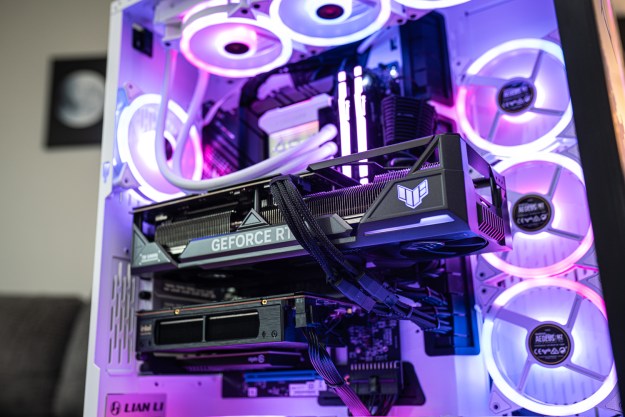Imagine if individual atoms could store data. Dutch researchers are working on doing just that, and can fit 500 terabits of data in a single square inch. That’s right: 500 terabits, or 62.5 terabytes, in a drive the size of a postage stamp.
This atomic hard drive is 500 times more dense than current solid-state drives, but don’t look for it on the market anytime soon. You can, however, read about it in a paper published in Nature Nonotechnology, if you’re up for some academic reading. For a less academic take, you can read Gizmodo’s interview with Sander Otte, one of the paper’s authors.
The drive features cholorine atoms on a copper surface, which results in a perfectly square grid. A “hole” appears in the grid any time an atom is missing, meaning you can remove atoms to create the on/off dualism that’s essential to all data storage.
“The combination of chlorine atoms and supporting copper crystal surface that we found now, combined with the fact that we manipulate ‘holes’ — just as in a sliding puzzle — makes for a much more reliable, reproducible, and scalable manipulation technique that can easily be automated,” said Otte. “It is as if we have invented the atomic scale printing press.”
Using this as the basis, the team managed to write all sorts of data, including the entire text of Richard Feynman’s famous lecture, “There’s Plenty of Room at the Bottom,” and Darwin’s “On the Origin of Species.”
The upsides here are obvious: that’s a lot of storage density. Are there any downsides? As it turns out, yes. Right now the technology needs to be cooled down to liquid nitrogen temperatures, or -346 degrees F, in order to function. And the read/write speeds are pretty slow, according to Otte.
So this technology isn’t exactly ready for market at this point. But if this kind of scale can be replicated at room temperature someday, the future of storage could be very bright.
Editors' Recommendations
- Samsung’s 2nd-generation SmartSSD can process data right on the drive
- How to clone a hard drive on MacOS and Windows
- The best wireless external hard drives
- Waymo’s next-gen self-driving tech can see what’s happening 500 meters ahead


